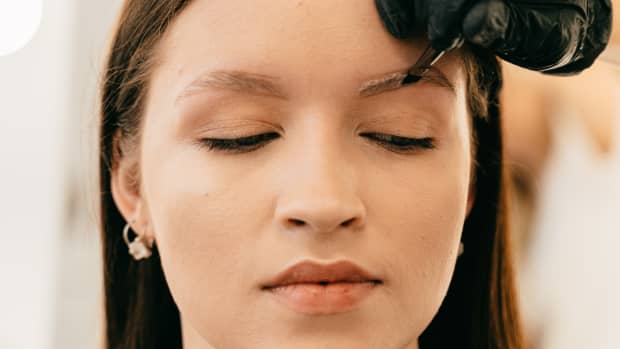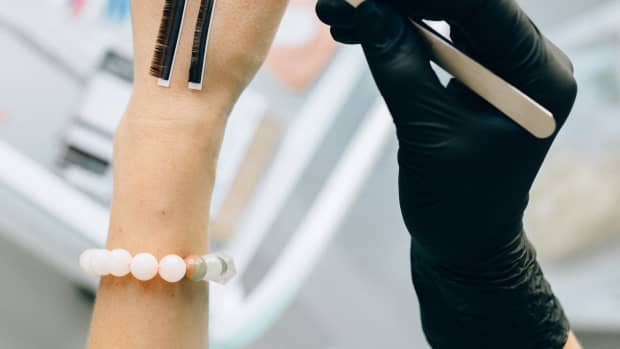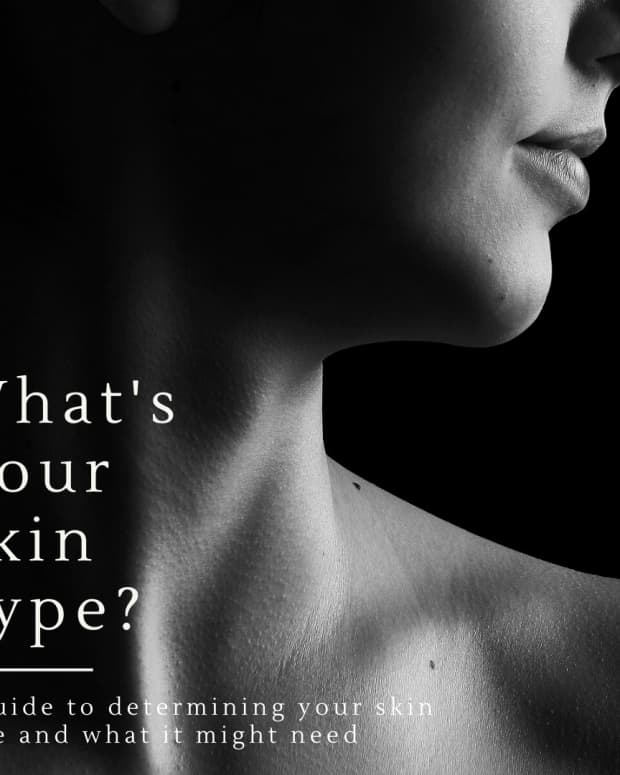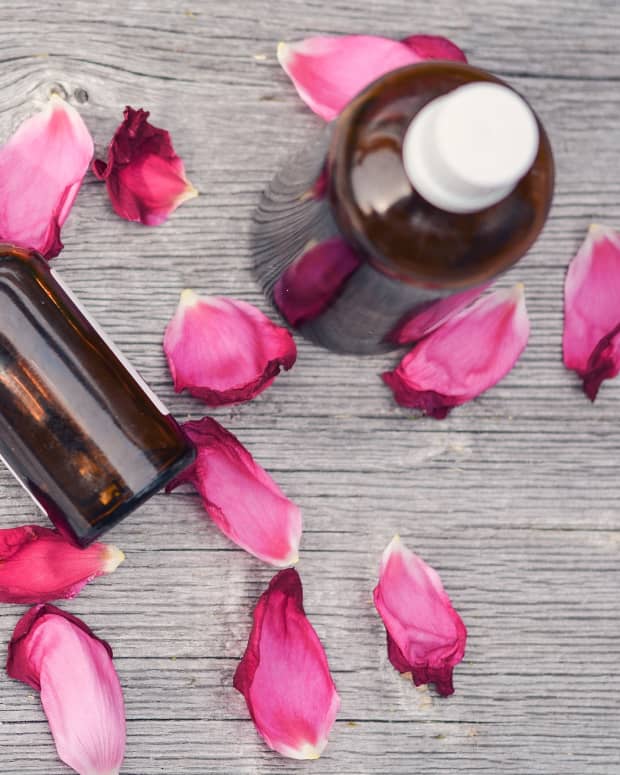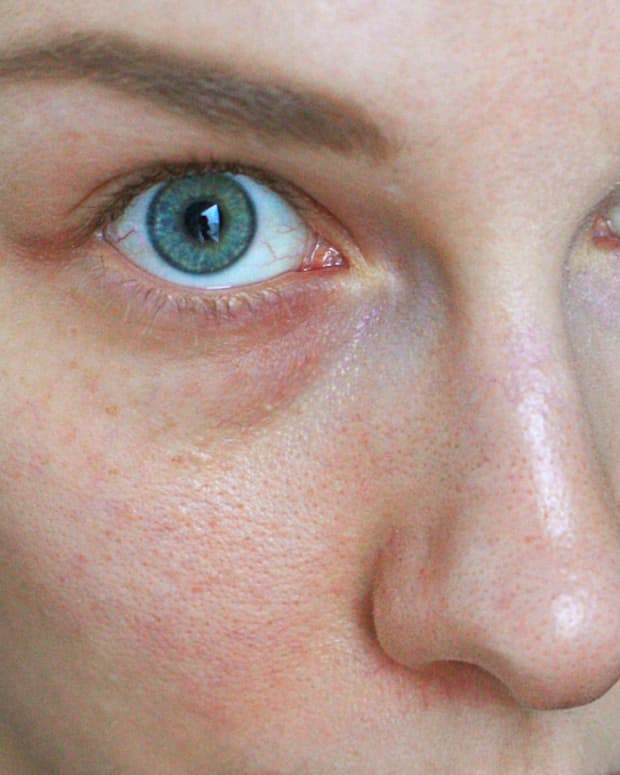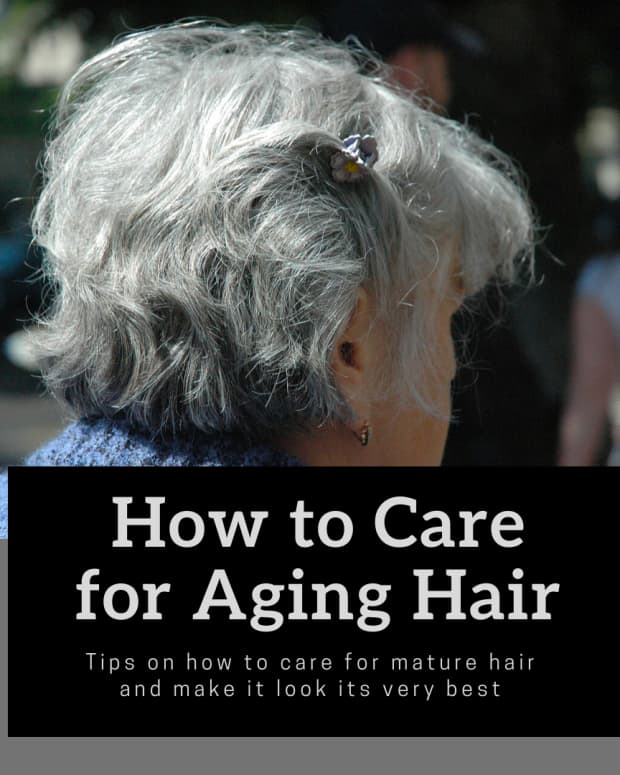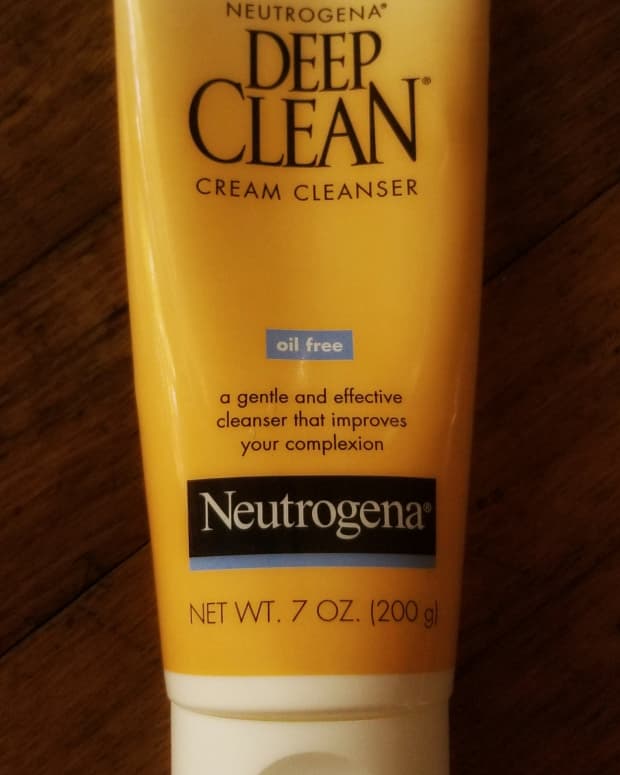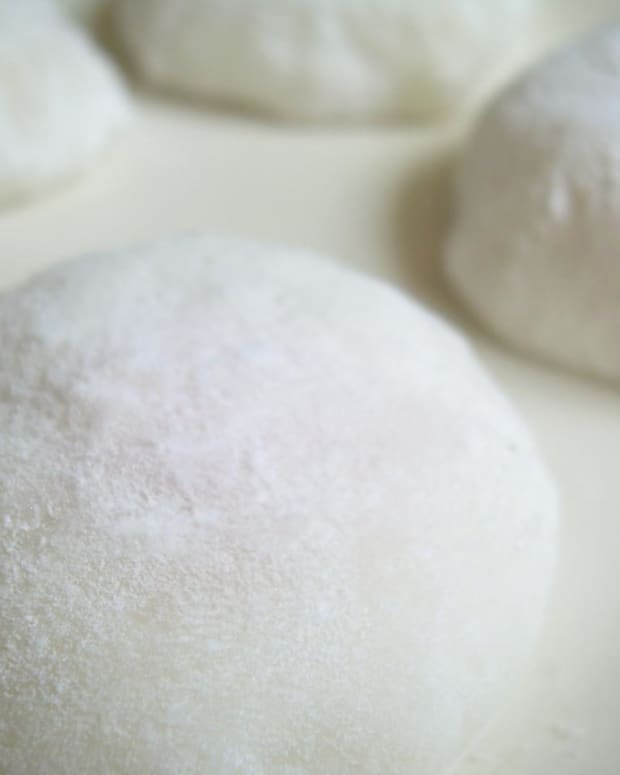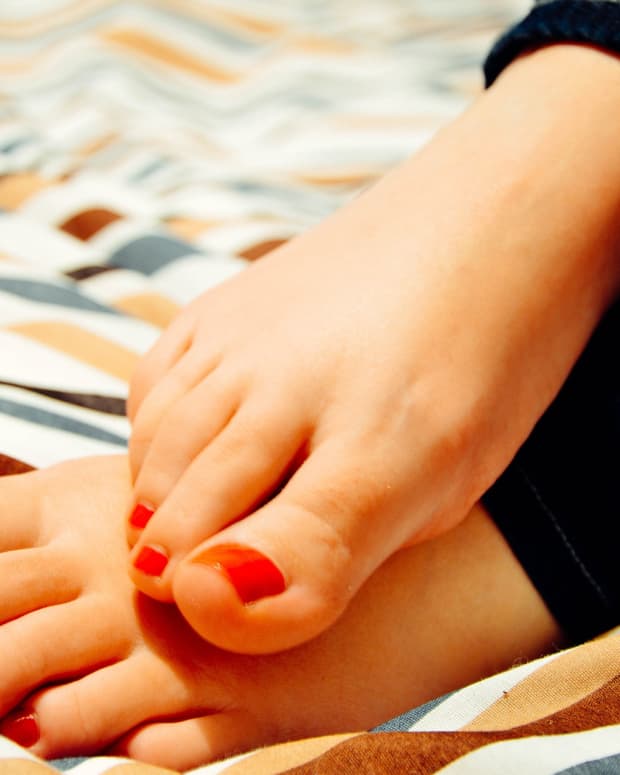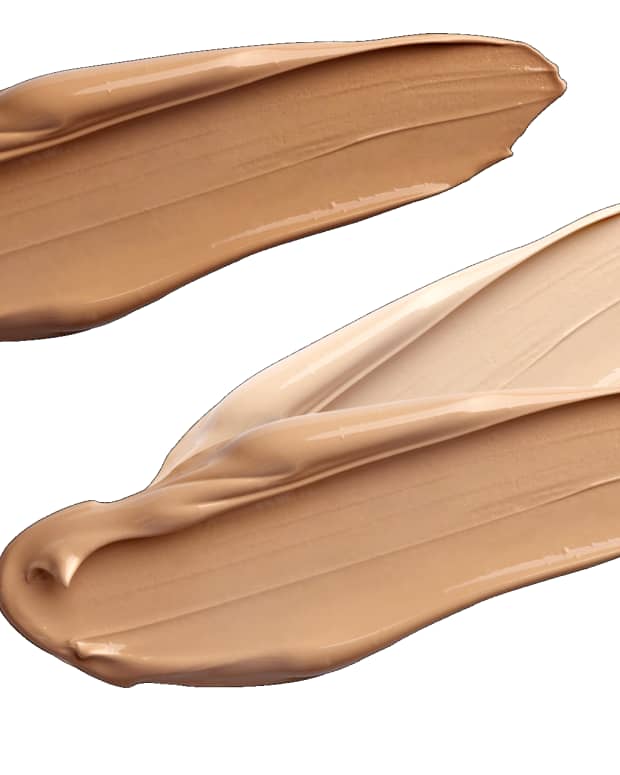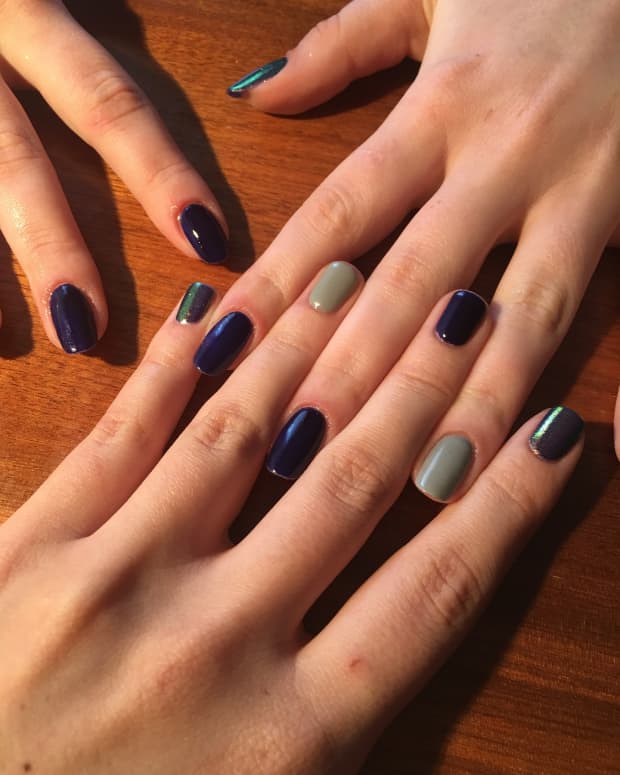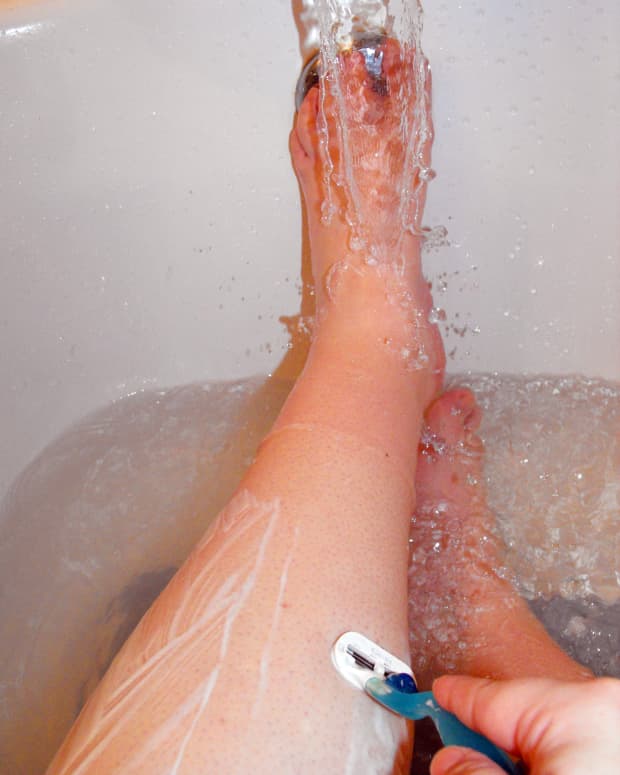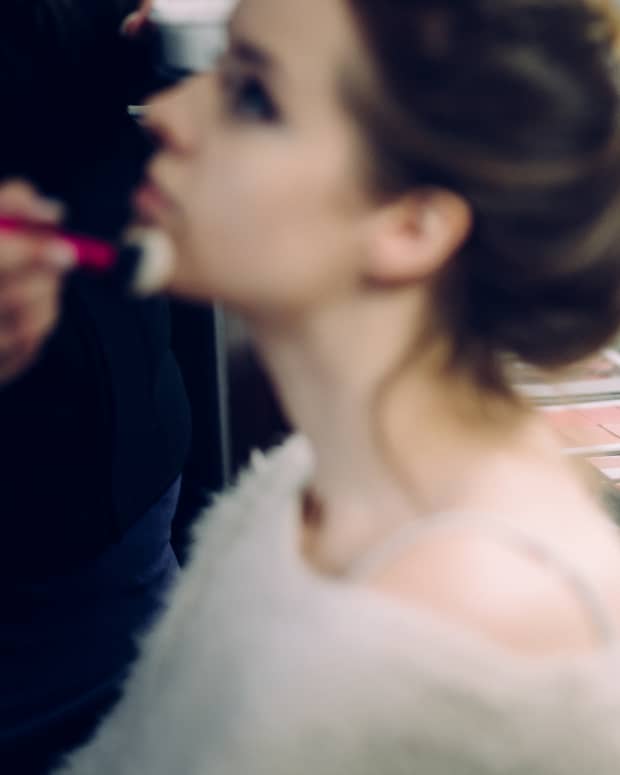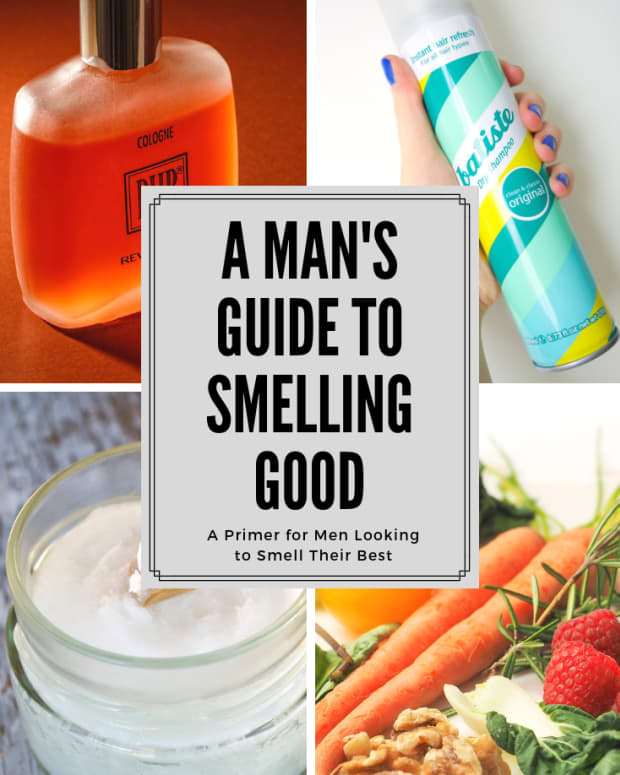Skin Care on a Budget
A beauty consultant by profession, Jayne has been advising on correct skin and hair care, makeup, and other cosmetics for almost 20 years.

Products available at drugstores are likely to offer the same skin care benefits as anything you'll find at the beauty counter.
RayPhotosPerth (https://pixabay.com/de/kaufhaus-kosmetik-z%C3%A4hler-kosmetik-265135/)
Frugal but Effective Skin Care Regardless of Skin Type
Learn why inexpensive skin care products are often just as effective as their high-end counterparts and how some cosmetics serve more than one purpose and in turn allow you to purchase fewer products. Discover, too, how to implement vegetable oils in place of expensive pharmacy formulas to mediate skin conditions like neurodermatitis, sun damage, and acne.
Why High-End Cosmetics Are Not Better
For the most part, high-end cosmetic brands do not owe their commercial success to exceptional quality or efficacy, but to celebrity endorsements, designer labels, pseudo-science, and the perceived value of overpricing.
With their luxurious packaging, rich textures, and opulent fragrances, expensive cosmetics often prove irresistible. And should anyone think twice about their high prices, they can be justified by innovative ingredients claiming to bring about results comparable to costly cosmetic procedures like chemical/laser resurfacing or wrinkle-filling.
But the molecules of most of the substances included in such products, like collagen, are far too large to penetrate the skin and can't possibly do it any good. The same is true of decadent-sounding ingredients like "caviar extract," for example, which is nothing more than something derived from the eggs of a fish—any fish—and won’t affect your skin’s health or appearance in any way.
This means your skin doesn’t need to suffer when money is tight: modestly priced products available at drugstores, including store or "no-name" brands, are likely to offer the same skin care benefits as anything you’ll find at the beauty counter. In fact, these often prove better than their upmarket counterparts.
How to Shop Wisely at the Drugstore
You can get high-quality skin-care products at your local drugstore and save money once you're armed with accurate information. Here's what you need to know.
The Difference Between the Beauty Counter and the Drugstore
The drugstore employs much of the same marketing gimmickry as the beauty counter, although it may be executed in a slightly different way. Therefore, shopping at the drugstore does not guarantee value for money. However, it does offer the opportunity to shop frugally and sensibly, which the beauty counter does not. It's just a question of finding the right products.
This obviously involves some experimentation until you find exactly what works best for you, but here are a few pointers so you know where to look and which ingredients to look for (or avoid) if you want to help your skin without hurting your wallet.
Where to Look
You’ll find countless skin care cosmetics at the drugstore, making it difficult to know where to look first. The best place to start is with home-brand products formulated specifically for your skin type. These are usually situated on the lower shelves.
If it’s a deciding factor, you’ll find that most drugstores also carry their own line of organic products.
Look to the next price category—usually one or two shelves above—only if you can’t find exactly what you’re looking for or if a home-name product hasn't achieved the results you'd hoped for.
Moisturizers
There are moisturizers for every possible skin condition, but the most important thing to look for when choosing one for the daytime is that it contains sunscreen, regardless of the time of year. For dry or aging skin, make sure it's of a heavier consistency for the nighttime.
Effective Anti-Aging Ingredients
Anti-aging creams often contain retinol. This is vitamin A1 and is sometimes listed in ingredients as retinylpalmitate or retinaldehyde. Concentrated medical-grade retinol applications are used to treat severe cases of photoaging and acne. Another effective anti-aging ingredient is glycolic acid, an alpha-hydroxy acid that works on the skin as an exfoliant.
Toners
No matter what your skin type, avoid toners with alcohol. If you’re acne-prone, you’ll find that most toners formulated for problem skin do contain alcohol. Choose a product for sensitive skin instead.
Cosmetics for Problem Skin
For oily, combination, or acne-prone skin, choose a mild, unscented face wash and a water-based moisturizer. Look out, too, for products with glycolic acid.
For more severe acne, creams and lotions with benzoyl peroxide disinfect and prevent blocked pores and hair follicles. If you find these too irritating, try something with salicylic acid, which is a beta-hydroxy acid.
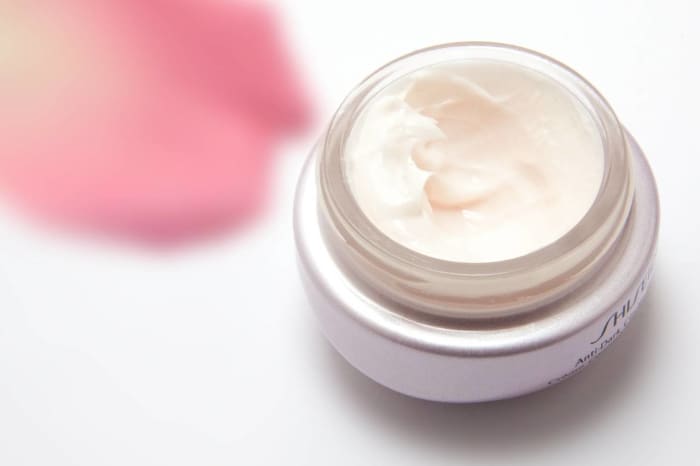
For the most part, high-end cosmetic brands do not owe their commercial success to exceptional quality or efficacy, but to celebrity endorsements, designer labels, pseudo-science, and the perceived value of overpricing.
By Stux (https://pixabay.com/en/cream-skin-care-eye-cream-194116/)
Multi-Function Skin Care Products
Not only can you save by purchasing cheaper skin care products but also by having fewer.
Read More From Bellatory
Night Cream and Cleanser
It may seem hopelessly old-fashioned, but cold cream is an effective night cream and cleanser—it even disperses waterproof mascara, making an extra eye makeup remover unnecessary.
Cold cream is hard to get in some countries, but any light-textured product for face and body like Nivea Soft Creme should do the trick. Although what is good for one person isn’t always good for everyone, these creams are suitable for all skin types, including oily and dry.
For Very Dry Skin of Hands and Face
If your facial skin is very dry and chapped, apply original Nivea Creme (or equivalent) mixed with vegetable or baby oil as a night cream. Just stir together equal portions of oil and cream and ply thickly over your face, neck and cleavage before getting into bed.
For dry, weather-beaten hands, mix boiling water and original Nivea Creme (or equivalent) to a ratio of 1-to-2 respectively and apply while still warm. Cover the hands with cotton gloves and allow to work overnight.
There’s no hard scientific or medical evidence to suggest that mineral oil used in cosmetics like original Nivea Creme poses a health risk, but if you’d prefer to avoid it, substitute for a shortening product like Crisco or Cookeen mixed with vegetable oil. This is how it’s prepared:
- Melt 100g (4 oz) shortening in a hot water bath.
- Leave for half an hour to cool at room temperature.
- Add 1 dessert spoon of vegetable oil.
- Whisk until thick and creamy.
- Allow to set before use.
Replace Anti-Wrinkle Cream, Eye Cream, and Lash Conditioner
Apply castor oil combined to a ratio of 1-to-1 with jojoba oil at night to diminish the appearance of wrinkles and fine lines over the whole face, including the mouth and eye areas. Both these oils are noncomedogenic, meaning they won't block pores if you're acne prone. If you exchange jojoba for another oil, make sure it’s of a thinner consistency than castor oil.
Brush neat castor oil onto your lashes to promote growth and strength—you may have noticed that it’s included in all commercial eyelash conditioners. Alternatively, use petroleum jelly. Castor oil also works well to prevent and "repair" split ends.
For Lips, Feet, Elbows, and Cuticles
For cracked lips, feet, and elbows, and to soften cuticles, use petroleum jelly. If you’d prefer to avoid petroleum jelly, substitute for castor or coconut oil.
Use Oil As a Cleanser and Shaving Lubricant
Any oil will work for cleansing and shaving, whether it's baby oil or the cooking oil on your kitchen shelf, but the following are ideal for this purpose and may benefit certain skin conditions:
- Jojoba oil for oily, combination, and acne-prone skin.
- Almond oil (which imitates the skin’s natural barrier) for sensitive and mature skin.
- Wheat germ oil for very dry skin.
How to Use Oil As a Cleanser
Use oil to cleanse your face and remove makeup, including waterproof mascara. This is how it’s done:
- Wet your face with lukewarm water.
- Apply a few drops of oil.
- Massage until an emulsion is formed.
- Rinse with lukewarm water.
- Remove residue with a cotton pad.
How to Use Oil As a Shaving Lubricant
You can also use oil as a shaving lubricant for the face and body. Just wet skin, apply oil, shave, rinse, and remove residue (if necessary) with a cotton pad or cosmetic tissue. It works better than soap-based lubricants because it allows you to see exactly what you’re doing as well as preventing cuts, nicks, razor bumps, and rashes.

Use oil to cleanse your face and remove makeup.
By Stux (https://pixabay.com/en/cosmetics-oil-breed-perl-oil-293293/)
Vegetable Oils for Skin Conditions
Before purchasing a pricey pharmaceutical formula or spending unnecessarily at the beauty counter, try treating skin disorders and conditions with oil. Just massage into the skin or mix with original Nivea Creme or shortening as described above. Choose from the following table:
Oil | Benefits |
Hawaiian Kukui Nut Oil | Heals sun damaged skin. |
Almond Oil | Repairs the skin's natural barrier. Ideal for mature and sensitive skin. |
Wheat Germ Oil | Rich in vitamin E. Ideal for weather beaten skin. |
Jojoba Oil | Soothes rashes and inflammations. Relieves itchiness. Noncomedogenic. Ideal for oily and acne prone skin. |
Elderberry Oil | Antioxidant properties. Absorbs easily, making it suitable for daytime use on face and body. Can also be applied beneath moisturizer in place of serum. |
Sea Buckthorn Oil | Also called "sallow thorn" or "sandthorn" oil. Rich in vitamin E and pro-vitamin A. Anti-aging properties. |
Musk Rose Oil | Effective in the treatment of scars. |
Evening Primrose Oil | Soothes and smooths rough and sensitive skin. Effective in the treatment of neurodermatitis. |
Organic Apple Cider Vinegar As Toner and Aftershave
Organic apple cider vinegar is inexpensive and recommended for all skin types to restore pH balance after cleansing and/or shaving. It also contains malic acid, which is an alpha-hydroxy acid. This can benefit acne-prone skin and work as an anti-aging ingredient.
Always dilute vinegar according to how sensitive your skin is—it can cause severe redness if applied neat. It’s best to mix to a ratio of 1-to-1 with distilled or flat mineral water or with green tea for an antioxidant effect. The smell is somewhat pungent but dissipates within a matter of minutes.
This content is accurate and true to the best of the author’s knowledge and is not meant to substitute for formal and individualized advice from a qualified professional.
© 2014 Jayne Lancer
Comments
Jayne Lancer (author) from West London, UK on June 29, 2015:
Thank you, PeachPurple!
A good part of it is knowing what really is good for your skin, and what your skin really doesn't need.
peachy from Home Sweet Home on June 29, 2015:
that is a clever way to save the skincare

